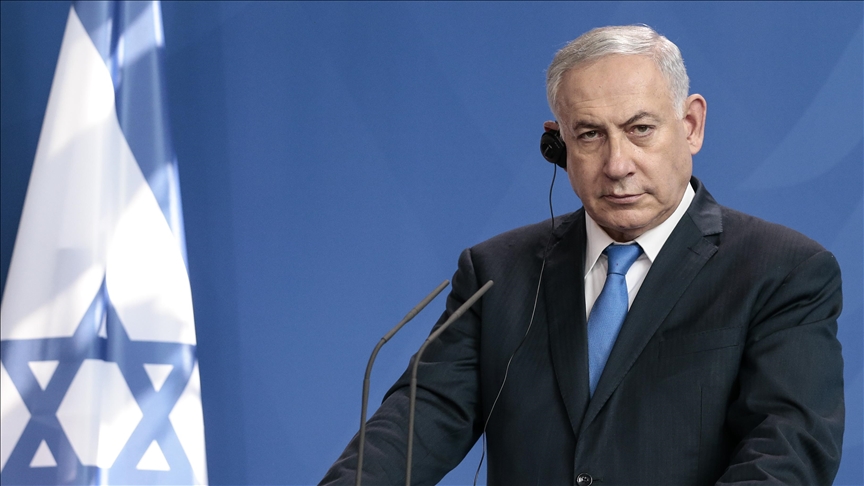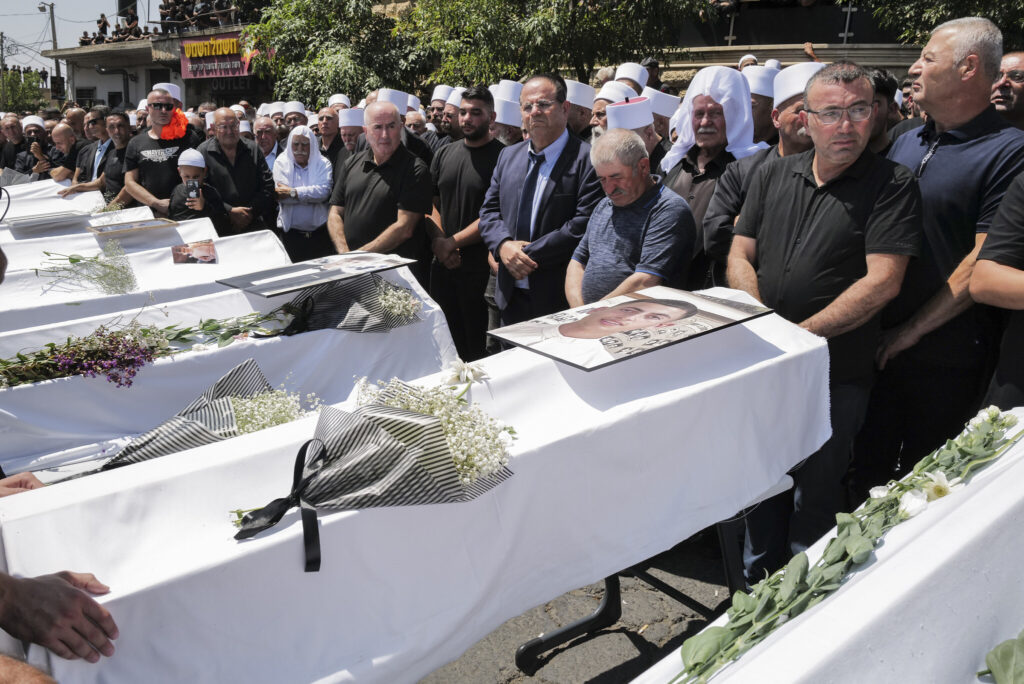Prime Minister of Israel, Benjamin Netanyahu has pledged a “severe” response against Hezbollah following a rocket attack that killed 12 children in the Israeli-controlled Golan Heights. The incident has heightened fears of a potential escalation into a regional conflict, prompting intense diplomatic efforts to prevent further violence.

The attack occurred on Saturday evening when a rocket struck a soccer field in the predominantly Druze town of Majdal Shams. Israel has blamed Hezbollah for the strike, although the Lebanese militant group has denied involvement in an unusual move.
Visiting the attack site, Netanyahu stated, “These children are our children, they are the children of all of us. The state of Israel will not and cannot overlook this. Our response will come, and it will be severe.” His visit was met with protests from about 300 local residents, who called for an end to the violence.
U.S. Secretary of State Antony Blinken spoke with Israeli President Isaac Herzog, emphasizing the “importance of preventing escalation” and discussing diplomatic solutions to the months-long conflict. The White House National Security Council reported ongoing communications with Israeli and Lebanese counterparts to “end all attacks once and for all” in the border area.

The incident comes amid escalating tensions along the Israel-Lebanon border, with almost daily exchanges of fire since the outbreak of the Gaza war in October. While both sides have seemingly tried to avoid full-scale conflict, the latest attack has raised concerns about potential reprisals leading to wider warfare.
Early Monday, Israeli strikes hit a motorcycle in Lebanon near the border, killing two people and wounding three others, according to Lebanese state media. These strikes appeared to be part of the ongoing cross-border exchanges rather than a specific retaliation for Saturday’s attack.
The situation has prompted diplomatic interventions, with Amos Hochstein, a senior adviser to U.S. President Joe Biden, reportedly making numerous calls to contain the situation. Meanwhile, Lebanon’s caretaker Prime Minister Najib Mikati spoke with British Foreign Secretary David Lammy, both agreeing that widening the conflict is “in nobody’s interest.”
The potential for a full-scale war between Israel and Hezbollah raises significant concerns due to Hezbollah’s substantial firepower, estimated at 150,000 rockets and missiles, including precision-guided weapons. The last major conflict between the two in 2006 resulted in massive destruction in Lebanon.
As tensions remain high, the international community watches closely, hoping diplomatic efforts can prevent further escalation and bring stability to the region. The coming days will be crucial in determining whether the situation can be de-escalated or if it will spiral into a broader conflict with far-reaching consequences for the Middle East.



